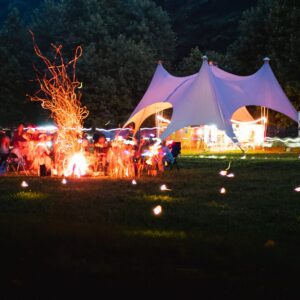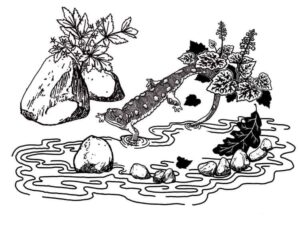It’s a breath of fresh air to see more people rediscovering the delicious taste and health benefits of fermented drinks made with simple ingredients like fruits, herbs, and honey. As folks become increasingly aware of how toxic current drinking culture can be, learning to homebrew mead, apple cider, and more with raw and local ingredients allow for more control in taste and quality, while also building a connection to what we ingest. As we source from the plants and natural sweeteners around us, making fermented beverages can become a practice of engaging with our ecosystems and ceremoniously sharing these creations in community.
Some have said homebrew beverages like mead is “the ambrosia of the gods,” while others just call them delicious! The fact is, fermented drinks like apple cider and rice beers are rich not only in human history and opportunities for connection, but in probiotics that can help restore the natural balance of our internal communities of gut bacteria. These drinks are created when bacteria and yeast consume sugars, converting them into lactic acid and alcohol. Often the supportive bacterias in our guts are compromised by a poor diet and stress, and probiotics help to restore a diversity of bacteria within. Fair warning: yes, these drinks may make you regular as a result. You’re welcome… and don’t say we didn’t warn you!
A few of our favorite homebrew drinks from around the world are Mead, Hard Apple Cider, and Makgeolli (Korean Rice Beer). As mentioned, if you choose to make these drinks at home you have control over the taste and even the strength of your brew, meaning, you can adjust the alcohol content in your mead, cider or beer to whatever you choose. It really is your world. Read more about these beverages below, and dive even deeper with our Homebrew Workshop on April 15!
On the Magic of Mead
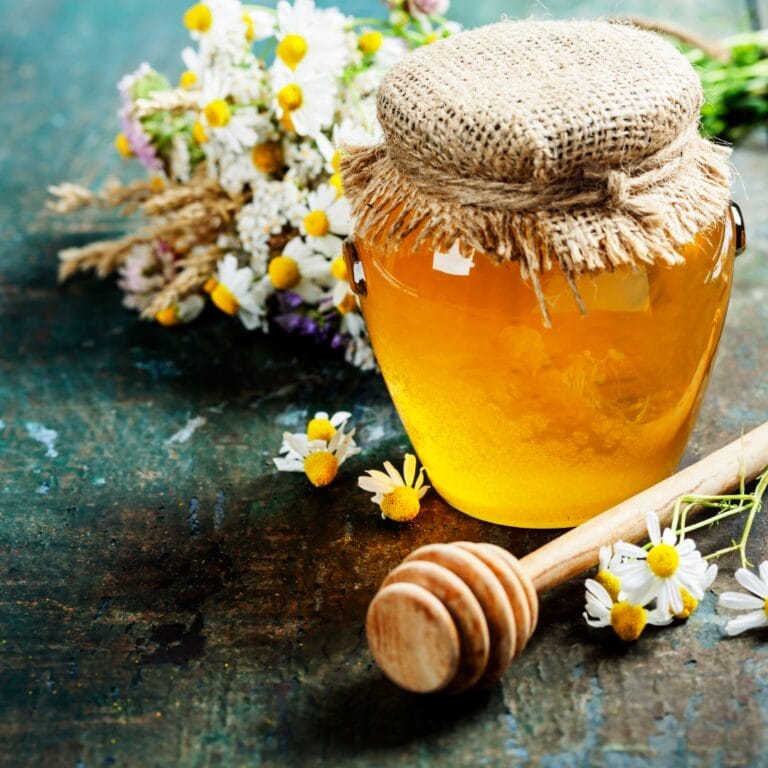
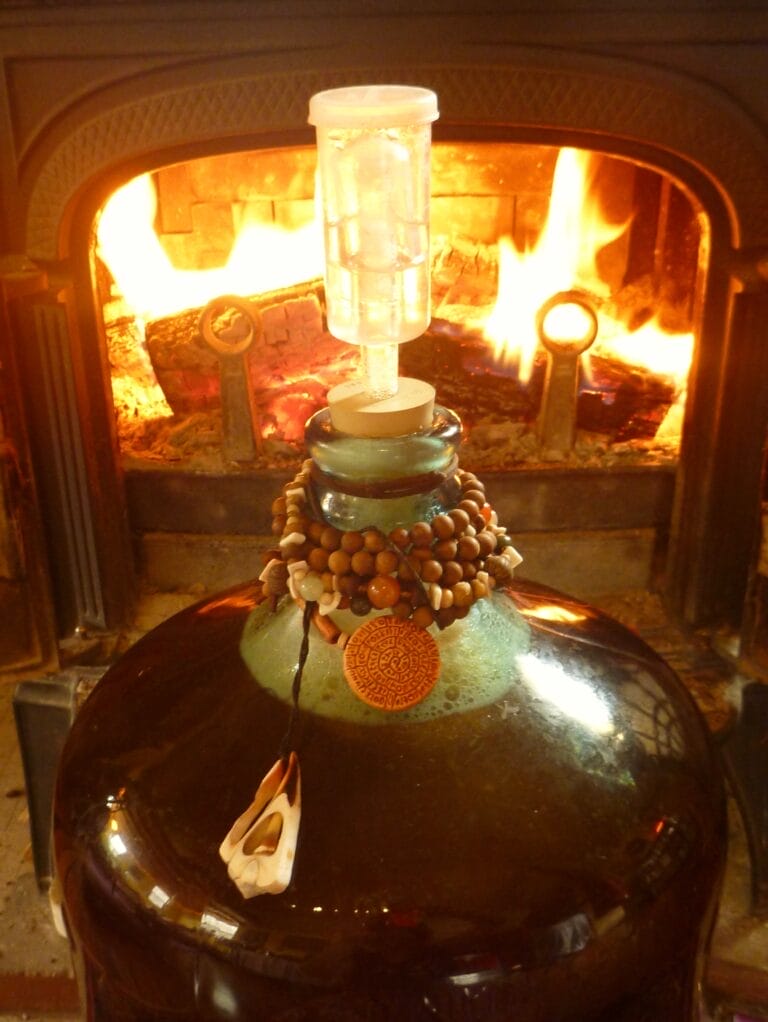
Humans have been drinking Mead all over the world for centuries, but the drink was first experienced in Africa. This simple combination of fresh water, honey and yeast creates a medley of flavors that poets and authors have been inspired to describe for a millennia. Local mead-making master and connoisseur, Merissa Percoco, describes mead as a rich delicious honey brew that can be herbal, fruity, spicy, or floral. It can be enjoyed from 3 months to 20 years old, and flavored however your tastebuds desire.
Some of the earliest “good times” with honey mead were had during ancient Celtic and Norse (Ireland, Scotland, Wales and Scandonavia, et al.) cultural ceremonies like weddings, harvest festivals, and religious rituals. Mead was believed to have mystical powers and was often associated with love, fertility, and wisdom. The term “honeymoon” is believed to have stemmed from the Irish tradition of newlyweds drinking honey wine every day for one full moon (a month) after their weddings. We like to think of it as the magic of mead, sparking the flame since 1000 AD. (3)
Marissa teaches mead-making in an upcoming workshop in the North Carolina mountains. If you want to learn how to make homebrew beverages like mead or wine, find details below! When your friends ask how you made it, just say you’ve been colluding with the bees to create beverage bliss, and give them a swig.
Hard Apple Cider - Better than Water
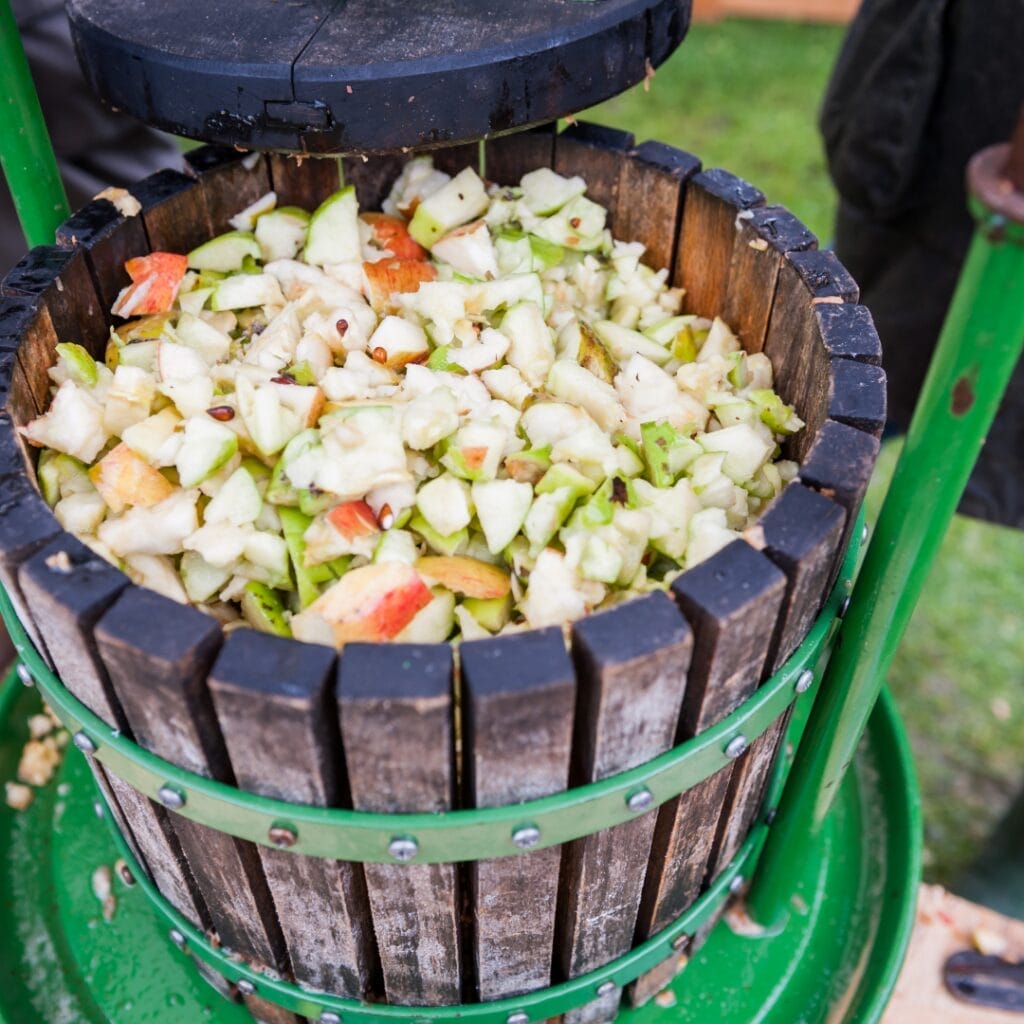
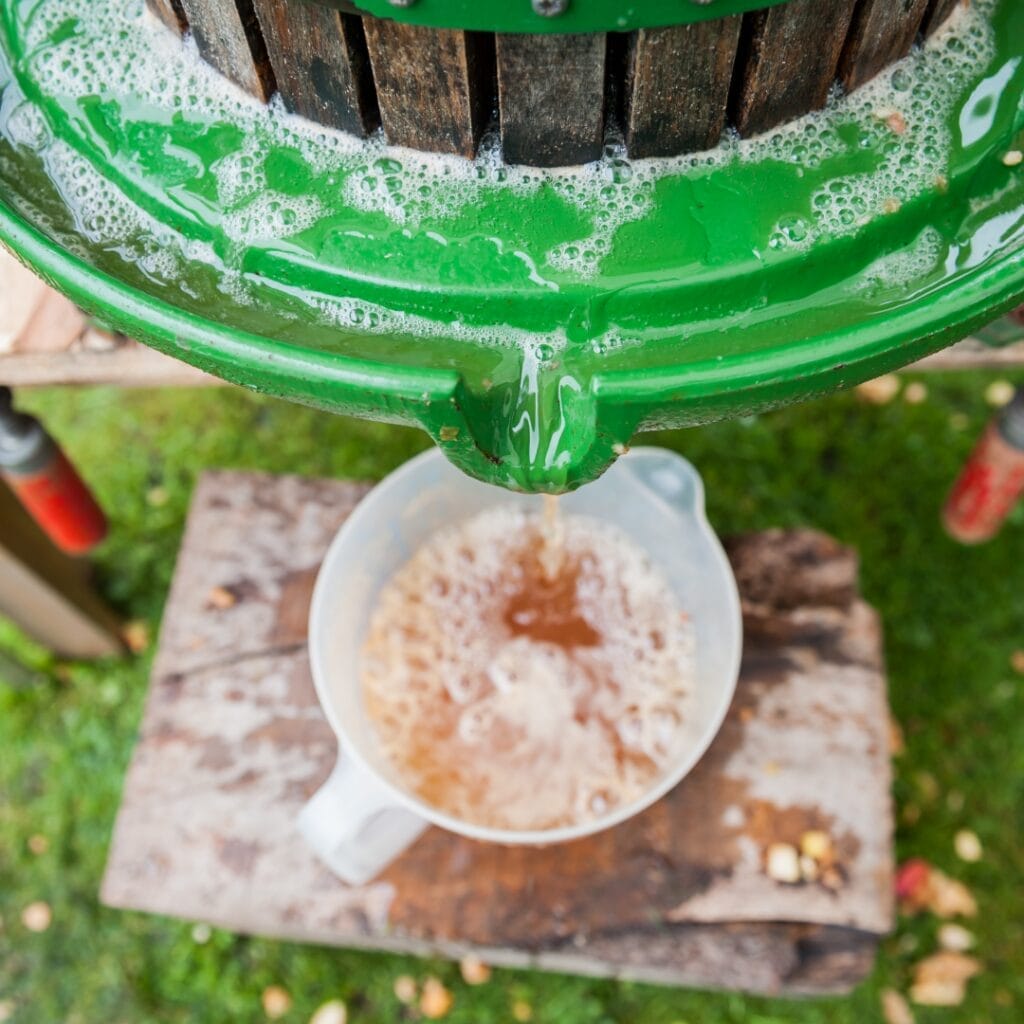
Hard Apple Cider recipes have been passed down for centuries in Europe and America, and a magical beverage in its own right. Making hard apple cider can be easy… just ferment fresh apple juice with yeast to vary low alcohol to sweet, cloudy to crisp, to clear sparkling high octane… magic. Ok, maybe not easy, but the sugars in the juice will convert to alcohol while you’re off living your best life!
Cider in early America was essential to everyday life and was consumed heavily in place of water. In early America, suspect water contributed to the spread of disease and was reportedly hard, bad-tasting and polluted. Colonists took cider more as a wellness beverage since it was more nutritious than the visibly putrid reservoirs of water available to them. Activate probiotics and good bacteria! There were even less alcoholic homebrew for children called “applekin,” where colonists practiced the art of manipulating alcohol content in the brew for their benefit. (1)
Korean Rice Beer aka Makgeolli (Pronounced Mac-go-li)


Korean rice beer, also known as makgeolli, is a popular traditional homebrew beverage. Make makgeolli by fermenting rice with a culture of yeast and bacteria, which produces a milky-white liquid with a slightly sweet, tangy flavor. Makgeolli is low alcohol with around 6-8% ABV, and is served with spicy Korean food, or savored solo.
To illustrate how important makgeolli is to Korean culture, on June 15, 2021, the Cultural Heritage Administration designated makgeolli making a National Intangible Cultural Heritage, aka, one of Korea’s most important intangible assets that needs to be preserved by the state and passed to future generations.
Traditionally, makgeolli has been enjoyed during celebrations like weddings and ancestral rights. It’s believed to bring good luck and fortune to the participants, and is used as a spiritual offering. Even today, Koreans give makgeolli as a gift when wishing someone well or good luck. (4)
Rice beer is silky smooth in the mouth, creamy and full bodied; sweet, fruity and a little nutty all at the same time. Like mild sweet sake, but different. It’s wonderful blended with fruit juice and given a secondary fermentation for sparkles….not sure what that means? Then come to our upcoming Homebrew workshop and find out!
There are many benefits to making naturally fermented beverages at home. With more control over the quality and ingredients, you know the drinks are free from additives, preservatives, and other bull (to be frank).
On Saturday, April 15, we’re having an intimate workshop on how to homebrew sake, wine and beer in Barnardsville, NC, with our local Master Brewer, Marissa Percoco. Throughout this workshop we will talk about having a healthy relationship with alcohol, and how making your own wine and beer can help improve moderation. If you’re interested in learning how to cut back on alcohol, join the group discussion on bringing back the ceremony and sacredness into alcohol creation and enjoyment.
Wild fermented or yeasted; cold temperature ferment or warm; how long it spends in primary; and did it have a secondary? These are all things that have a major influence on what beverage you make and how it’ll turn out and taste. If you’re ready to learn how to make some of the best fermented drinks you’ve ever tasted, join us for a half-day event on making wines and beers from scratch, with love. Register here.
Instructor Bio
Marissa Percoco wears many hats: first she is a devoted mother to her own four amazing (now mostly grown!) children and is also “Mamarissa” to many! Having grown up in the concrete labyrinth of the San Francisco Bay Area, Marissa escaped to the wilds in college and has never looked back! She is a naturalist by heart, and spent her children’s younger years adventuring and raising them as a single mom, exploring community & nature, traveling the backcountry on a shoe-string, from coast to coast, crawling through swamps, deserts, mountains, hot springs, islands & oceans. Learning plants, animals, stories and local ways of weaving into harmony with the environment is her passion. Marissa is also: a plant and land tender, activist, artist, delicious food maker, bee tender, crafter, bookworm, tiny home dweller, otter, plant spirit communicator, healer, trickster and so much more! As of 2021, Marissa is also a breast cancer survivor, which is an ongoing and incredible journey of fear, pain, humility, connection and healing. Fermentation is a special love of Marissa’s, along with an obsession with strange & exotic plants! Viewing all flora as brethren, Marissa is never alone. Other loves include creating beauty, paddling, cooking, crafting, foraging, reading, playing games, and snuggling her kitties while watching things grow.
References:



